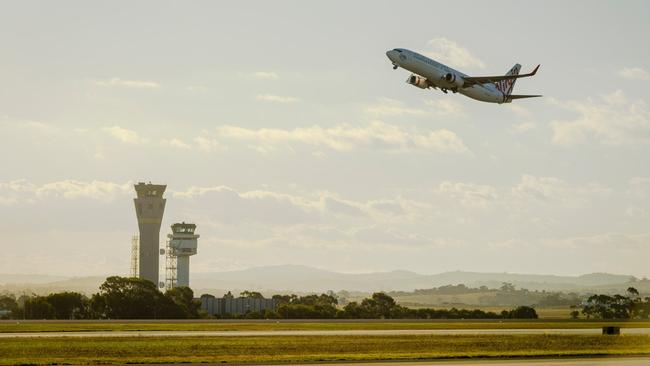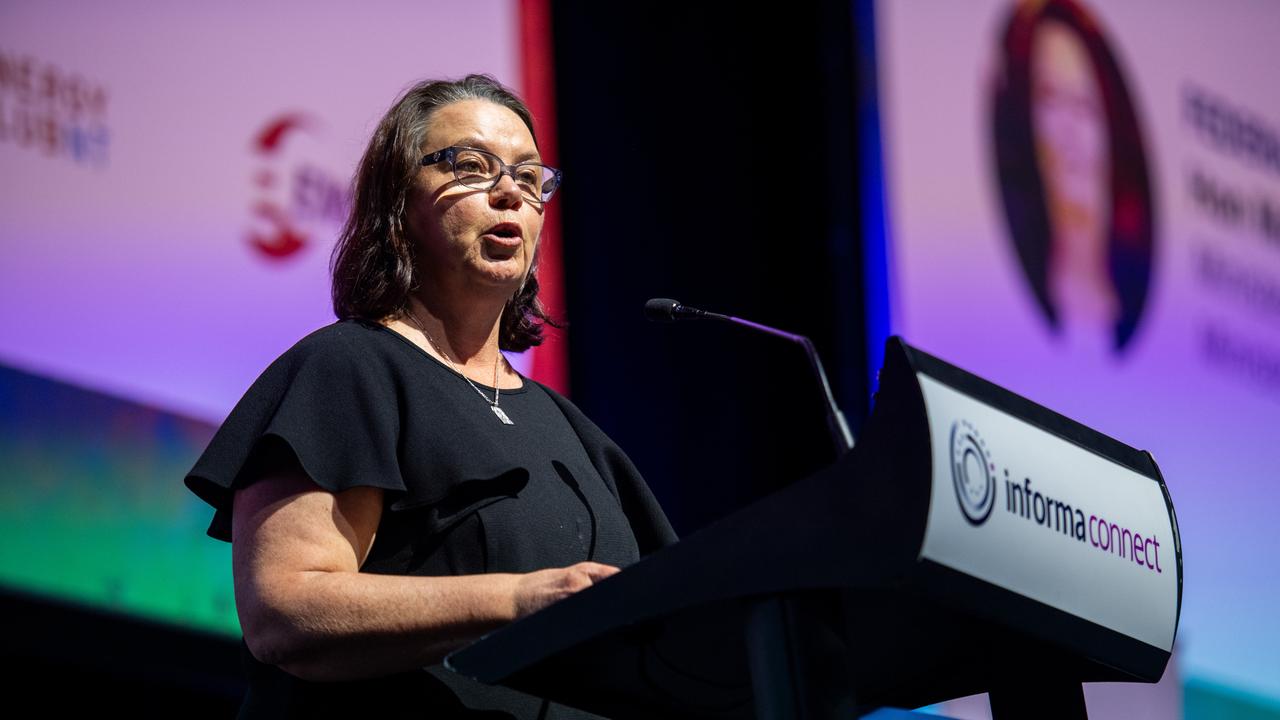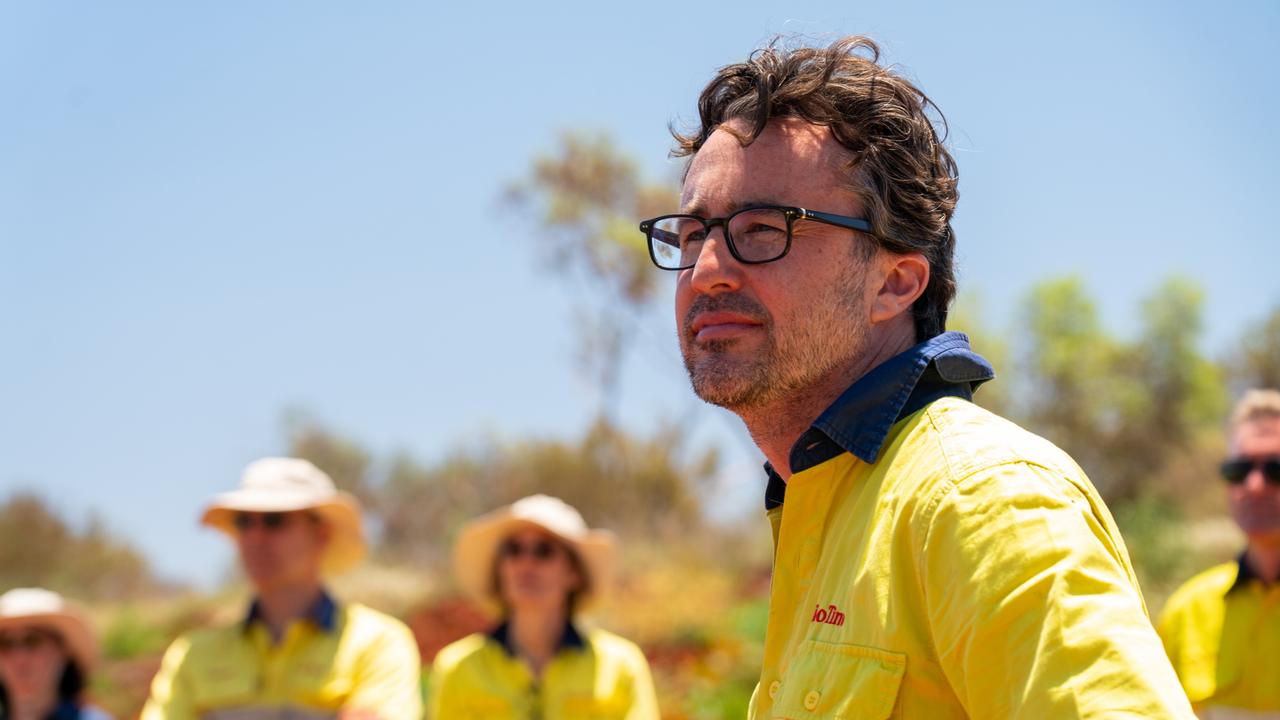Dexus and Melbourne Airport owners head to court in investment row
The battle for the future of Melbourne airport will play out in court as Dexus won an injunction to stop the forced sale of its stake and crush a dispute with some of Australia’s largest superannuation funds.

Business
Don't miss out on the headlines from Business. Followed categories will be added to My News.
Listed property giant Dexus secured a temporary injunction in a bitter court fight against some of the country’s largest superannuation funds which are trying to force it out of Melbourne and Launceston airports.
The row between the parties was made official last week after a majority of the airport company’s super fund co-owners gave Dexus notice instructing it to sell its entire 27.3 per cent stake.
They allege that Dexus breached confidentiality terms as it tried to sell part of this interest to another buyer, sparking a public falling out.
Dexus succeeded in the NSW Supreme Court halting a potential sale that would see Dexus divest its entire holding. It is also challenging the validity of the notice delivered by its co-owners.
Dexus’s directors will be able to attend committee hearings and continue to receive information about the ownership vehicle that holds the two airports, Australia Pacific Airports Corp. The process will not be finalised until after a hearing scheduled to take place in August.

Dexus-managed funds own an interest in APAC worth about $4bn, making the asset its largest holding.
It is up against heavyweights IFM Investors, the Future Fund, SAS Trustee, represented by NSW TCorp, and the Utilities of Australia vehicle managed by HRL Morrison and Co.
Lawyers for APAC alleged Dexus breached a confidentiality agreement when it tried to sell some of its shares.
Barrister Jeremy Giles SC, appearing for APAC, said the extent of the disclosure was “material”, after information from the data room was shared with organisations, advisers and more parties who he said did not sign confidentiality agreements. A data room is used to get access to information about a business that is not available in the public domain.
“There is no serious question to be tried. This is material because it is a breach of confidential information,” Mr Giles said.
“The class of information … is naturally confidential to my client and there has been a wide dissemination of it.”
Mr Giles said it was “hopeless” to try and get the information back: “The genie cannot be put back into this particular bottle,” he said.
Barrister James Arnott SC, appearing for Dexus, said his client wants the partial sale process it started to continue, and that its two directors have their access to board meetings restored.
“We say this is an inadvertent disclosure,” he said.
Mr Arnott said there is a carve out in the confidentiality deed to allow Dexus to disclose some information to a prospective buyer deemed qualified.
“It is unsurprising they contemplated that people might want to know some information about that business before parting with their money,” he told the court.
NSW Supreme Court judge James Stevenson will deliver his reasons on Thursday at 2pm.
Melbourne Airport ranks as the country’s second-busiest and Dexus picked up its interest in APAC two years ago as part of the purchase of Collimate Capital, the local real estate and infrastructure business it bought from AMP.
That deal meant that funds newly controlled by Dexus effectively became the largest shareholder in APAC.
Dexus had sought to offload a stake of about 9.7 per cent in APAC to new investors, but that process has been halted by the legal stoush.
Many of the investors Dexus is up against represent capital that it seeks to do business with on the real estate front, making the dispute uniquely fraught.
The dispute partly revolves around the valuation of the airport stakes by each of the co-owners with Dexus putting a higher value on its holdings than some others did.
This has prompted tension around both about what has been disclosed and also how it is valuing its stakes differently, as well as the implications for fees charged to underlying investors.
The so-called Dexus Bloc, which makes up the 27 per cent stake, puts the interests of powerful superannuation trusts at loggerheads with other co-owners. They include superannuation funds Rest and Australian Retirement Trust.
The airport stoush has wider implications for Dexus.
Analysts are concerned that should it fail, it would face larger ramifications beyond a potential loss of fee income of about $15m, as it would affect ties with the superannuation sector.
The company was this year forced to sell off a half interest in Sydney’s Macquarie Shopping Centre for $830m to its co-owners, Cbus and UniSuper, who had argued a “prohibited transaction” had occurred when Dexus bought the Collimate Capital business.
Dexus said last week that it “intends to dispute the validity of the notice, has always acted in good faith and will vigorously defend its position and its clients’ interests”.
More Coverage
Originally published as Dexus and Melbourne Airport owners head to court in investment row




